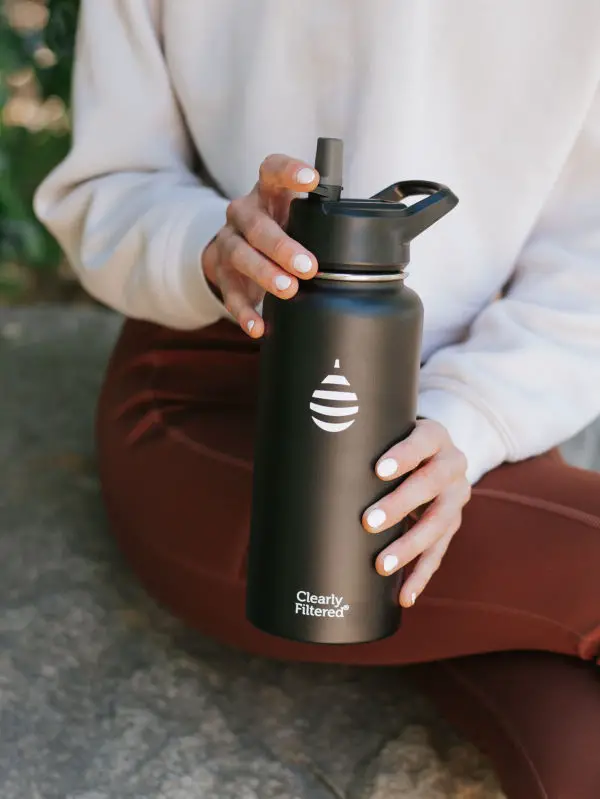Creatine is a common ingredient in energy drinks because it helps replenish muscle’s energy stores and reduces the effects of fatigue.
Products labeled as energy or sports drinks often contain creatine in their recipes to support professional and recreational athletes during training and in preparation for competition. Creatine actually became a popular additive in energy drinks after the 1992 Olympic Games.
In this article, we describe the unique properties of creatine and explain why it is a popular constituent in commercially available energy drinks.

Creatine and its impact on energy
Creatine is an amino acid that occurs naturally in humans – in fact it is found naturally in all vertebrate animals.
Our body makes the creatine and stores it in our muscles and brain. Creatine is also regulated through our urine, so if we ever have too much at any time our body knows how to get rid of it.
This is a good thing as we also get creatine from our diet every time we eat animal based foods.
Sources of protein such as red meat, poultry, fish and mollusks help us meet the average nutritional daily value of creatine needed. The FDA has no official recommended daily intake, but most health sources suggest between one and five grams per day.
It’s important to remember our body also creates creatine. So, we don’t actually need that much from our diet.
The organic compound is produced in our liver, kidneys and, in smaller amounts, the pancreas, and stored in the tissues with high energy consumption, like the skeletal muscles and the brain. Its purpose is to help supply energy to all cells in the body. It serves as an energy substrate for muscle contraction and metabolism.
Creatine is also present in human breast milk and infant formulas.
But creatine is mostly artificially prepared and purified to be consumed as a dietary supplement. It’s purpose is to increase the levels of stored creatine and free creatine in the body.
The aim of increasing our body’s creatine stores is to reduce fatigue and enhance performance during sports.
Creatine as a supplement
Creatine is typically found in the form of creatine monohydrate, a tasteless, crystalline powder that easily dissolves in liquids.
Studies show that creatine supplementation can also increase lean body mass as well as strength, power and efficacy in short duration, high intensity exercises. It does this by improving anaerobic capacity and protein synthesis.
For this reason, creatine as a food supplement is not considered a steroid or a stimulant, but an ergogenic aid. Ergon meaning ‘work’ and gennan meaning ‘produce’ in their Greek etymology.
Creatine enhances energy production, providing an advantage during sports competitions.
On the other hand, it has no proven benefits on endurance in aerobic exercise.
In the 1992 Olympic Games in Barcelona, the British sprinter Lindford Christie became the oldest man to win in the 100 meters. After declaring he was taking creatine supplements, this compound (first discovered in 1832) became widely used among recreational and professional athletes and sports people.
Today, it is a popular over the counter sports dietary supplement. It is not banned by the International Olympic Committee, and not regulated by the Food and Drug Administration (FDA).
Creatine in energy drinks
Creatine is also a common constituent in energy drinks often labeled as ‘sports drinks’.
The best time to take creatine is often considered immediately after a workout, combined with a drink with a high glycemic index, just like a commercial sports drink. Although, ask anyone in a gym and they will tell you they all take it before they work out.
Taking creatine supplements is generally considered safe, although it is especially recommended for its use in short duration, maximal intensity resistance (weights) training.
There is not enough scientific literature discussing any potential adverse effects from long term creatine supplementation. However, creatine is known to cause mild water retention and decreased urinary volume. This may result in temporary weight gain and potentially cramps and dehydration. It is advised to drink plenty of water to reduce any of these symptoms if present.
In a nutshell, creatine is added to many energy drinks to help reduce fatigue and improve energy levels. The very reason you drink an energy drink in the first place!
However, creatine may not be for everyone. People who have kidney or liver disease, type 2 diabetes or are pregnant may need to avoid creatine supplements. Always speak to a health professional before consuming any type of supplement.
Fortunately, creatine is not needed in an energy drink for you to get a boost of energy. There are plenty of alternatives, including caffeine, guarana, taurine and L-carnitine.
In fact, many brands of energy drinks choose not to use creatine as they main energy boosting ingredient.
Also read about the range of energy drinks without creatine.
Does caffeine cancel out creatine?
Both creatine and caffeine are organic compounds known to improve strength and sprint performance. This has led to the formulation of sports supplements combining the two ingredients. It was historically believed that the interaction between these compounds could interfere with the absorption of creatine. Or even negatively influencing the protein synthesis process.
However, modern researchers have questioned this idea. Further research with clinical trials is required, but animal testing has provided a new perspective.
Recent studies show that taking creatine and caffeine supplements at the same time does not inhibit their independent effects on energy production during physical exercise. In fact, taking caffeine and creatine together may actually improve their performance enhancing effect.
So, feel free to consume some caffeine with your creatine to really boost your workout!
Also read about the healthiest energy drinks here.
The Best Water Filter Bottle We’ve Ever Used
Clearly Filtered | Stainless Steel Filter Bottles
We really love these filter bottles for keeping your drinks cool and contaminant free! They remove 99.9% of over 220 contaminants and use BPA-free plastics and double-walled stainless steel to produce some awesome looking designs with numerous bottle sizes for every situation. You can find them at Clearlyfiltered.com

